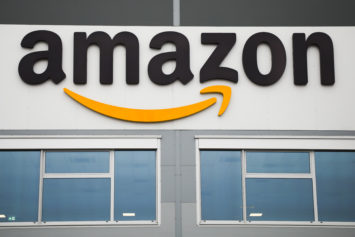First raised inside the pages of George Orwell’s classic “1984,” the concept that “Big Brother” is watching is nothing new; but while technology has allowed us to connect in ways few expected even a decade ago, in some ways it’s come at the expense of privacy, as systems like Siri and Alexa have become ingrained within our digital worlds.
For employees it’s meant an increase in scrutiny, with some companies taking extra measures to track things like laptop usage, email messages, phone calls, GPS location and more — raising concerns that surveillance in the workplace has the potential to become intrusive. Laws also vary by state, allowing places like Illinois to freely install tracking devices in company-owned vehicle, whereas Texas has banned it completely without consent.
Still, there’s a growing market for workplace surveillance, with some employers more than ready to monitor employee conversations, messages, location and more. For companies like Wiretap, which specializes in monitoring workplace messaging forums, it’s meant an increase in business for employers eager to monitor products, decrease theft, track employee whereabouts and more.
Per the Society for Human Resource Management, “Employers are increasingly concerned about the issues related to violence in the workplace and other unlawful employee conduct, identity and property theft, data security, viewing of pornography and other inappropriate and offensive behavior, lowered productivity, and on-the-job accidents and injuries.”
Now Amazon may be ready to jump into the surveillance game. After winning a series of patents that could potentially allow them to create trackable wristbands, the mega-distributor recently made headlines over concerns that employees could be forced to wear the devices at fulfillment centers across the country.
The patents in question — 9881277 and 9881276 — would essentially allow Amazon to create “Inventory management systems and related methods” that would track employee movements in order to monitor their performance when dealing with inventory. If implemented, a pulse system would be able to detect things like whether an item had been sorted incorrectly or placed in the wrong areas, a move that could potentially cut down on product loss while increasing productivity.
Speaking with CNNTech, an Amazon spokesperson argued “The speculation about this patent is misguided. This idea, if implemented in the future, would improve the process for our fulfillment associates. By moving equipment to associates’ wrists, we could free up their hands from a scanner and their eyes from computer screens.”
Currently, warehouse workers are tasked with moving products between bins, using a handheld scanner to verify each item. Amazon is hardly alone in its workplace surveillance practices, with an increasing number of employers ready to monitor their employees and, at times, act on the information received. According to a study conducted by the American Management Associate, “nearly 80 percent of major companies now monitor employees’ use of email, Internet or phone.”
“The lines between one’s personal and professional life can blur, but employees ought to engage in some discretion about personal activities carried out during the official hours of work,” AMA official Ellen Bayer said to ABCNews.
She added, “Privacy in today’s workplace is largely illusory. Work is carried out on equipment belonging to employers who have a legal right to the work product of employees using it.”
But it’s what employers can potentially do with the information gained that has some concerned. In 2015, a California worker claimed that she’d been fired after voicing complaints about an app that tracked her movements around the clock via a company issued iPhone, prompting a lawsuit that was later settled out of court.
According to the suit: “After researching the app and speaking with a trainer from Xora, Plaintiff and her co-workers asked whether Intermex would be monitoring their movements while off duty. [Intermex regional vice president of sales John] Stubits admitted that employees would be monitored while off duty and bragged that he knew how fast she was driving at specific moments ever since she installed the app on her phone. Plaintiff expressed that she had no problem with the app’s GPS function during work hours, but she objected to the monitoring of her location during non-work hours and complained to [Stubits] that this was an invasion of her privacy. She likened the app to a prisoner’s ankle bracelet and informed Stubits that his actions were illegal. Stubits replied that she should tolerate the illegal intrusion.”
Similar suits have followed, prompting a broader discussion about the expectation — or lack thereof — of privacy in the workplace. An issue that Todd Wulffson, a lawyer at labor and employment firm Carothers, DiSante & Freudenberger described as “These cases have people up in arms in an Orwellian kind of way. The problem is that technology is advancing faster than a lot of people’s comfort levels. And the laws are playing catch-up.”


